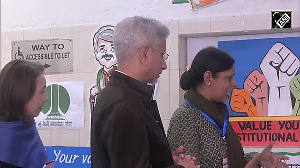Amid all the chatter about user-generated content and Web 2.0, another class of Web services has been quietly gaining momentum. Call it the "professional Web": online services designed explicitly to help you manage your career and do your job better.
LinkedIn, for one, has been adding 120,000-plus members a week and now has almost 10 million total. Users of Jigsaw have compiled more than 5.3 million business contacts, adding 12,000 a day.Right now, the most obvious value that these services provide is the opportunity to own (and control) your online identity. LinkedIn, as well as the services Ziggs and ZoomInfo, let you create a profile for free. (ZoomInfo also proactively aggregates Web info about professionals--34 million so far--and lets you verify your identity.)
Search for a name and these profiles generally show up in a search engine's top 10. This is a low-stress way to control your image and, incidentally, make yourself a passive job seeker.
Still, a site can't necessarily build a business on such a narrow premise, so each service is adding features designed to get us to use them more. Ziggs, for example, has ambitiously rebuilt its people search engine into a Web desktop where you can orient your world around the folks you know--from work, college, etc.
"People were using us once a month as a reference site, and when they'd come, they'd spend two or three minutes," says Ziggs CEO, Tim DeMello. "Now they're spending 10 times as much time. We want to offer daily utility."
Unfortunately, daily utility is the fool's gold of the professional Web. Most people are not going to reinvent their whole routine to match someone else's business model, which makes Ziggs more interesting for its parts than its whole. Take Elizabeth Yekhtikian, a PR professional in Boston who uses Ziggs to prospect for new clients.
"If I have an idea for a new business, I'll invite them into this professional environment for a chat," she says. Ziggs also allows you to send someone a cup of coffee (not instant coffee: a Starbucks gift card). But if no one you know is on the service, are you really going to invite people to join just to swap java?
Moreover, having someone's contact information doesn't make him or her a colleague. "How does one extract strength from such weak ties?" asks Hans Gieskes, CEO of H3.com, a service that tries to bolster those ties with cash incentives when people recommend others for jobs.
As an experiment, I imported 1,200 contacts into LinkedIn. Of those, about 350 were already members. I contacted all of them and asked them to connect. More than 230 have done so. But more interesting was the full gamut of responses to my request. It ranged from "Who are you, again?" to being thrilled to reconnect.
Many people, justifiably, were protective of their contacts. "At some point, building a network just becomes an end in itself," was a recurring refrain, something I was clearly guilty of. Those folks understand LinkedIn's greatest value, and its greatest flaw: Let one pushy semi- outsider into your network, and you've polluted it.
Is there a way to make this evolving professional Web work for you? LinkedIn is certainly useful for tracking your most trusted colleagues. But "use it for high-value items only," counsels Mikolaj Jan Piskorski, assistant professor at Harvard Business School, who has been studying social networks since 2003. That means: It ain't an everyday tool.
And for all those other people you've met professionally--those you're not quite ready to have in your network yet--consider the sneaky power of Web 2.0: Google Alerts, Flickr photo streams, del.icio.us news-article feeds, and blog posts can quietly keep you up to date on what they're up to. Over time, you can casually ping them with good quarterly reports and other news until you earn the trust that a LinkedIn connection just presumes. Only then will the people, and not the connection, be what's most important.






 © 2025
© 2025